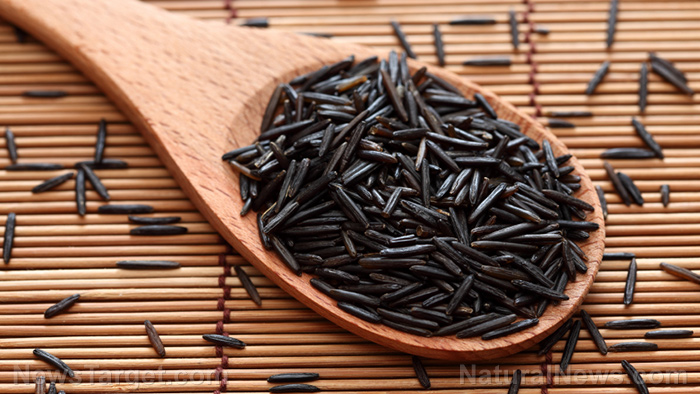
Advertisement
Nutrition is an important part of human health that, unfortunately, many people seem to neglect. According to the World Health Organization, the world is currently facing a double burden of malnutrition that manifests in the form of undernutrition and overweight. These serious health problems are especially prevalent in low- and middle-income countries.
In the United States, unhealthy eating habits and poor nutrition have led to a rise in obesity, with about one-third of American adults now suffering from the disease. Approximately 17 percent of American children and adolescents aged two to nine years are also diagnosed with obesity.
But obese or overweight individuals are not the only ones who are at risk of heart disease, diabetes, hypertension and premature death. Even those who have healthy weights are equally at risk if they have poor diets and suffer from nutrient deficiencies.
The U.S. Department of Health & Human Sciences also warns that risk factors for chronic diseases usually seen in adults are increasingly seen in younger Americans. And the culprit, the agency says, are diets full of nothing but unhealthy foods and low levels of physical activity. These two are major contributors to rapid weight gain.
And because a healthy diet is part of a healthy lifestyle, and a healthy lifestyle translates to a reduced chronic disease risk and a healthy weight, the agency is urging Americans to make changes to their diet and to start getting physically active.
To improve your overall health and nutrition, you can start by cutting down on junk foods and including these nutritious ones in your daily diet. Here are some superfoods you should start eating now:
Nutrient-rich fruits like mangoes
Mangoes are tropical fruits that are juicy, refreshing and packed with nutritional benefits. Besides being loaded with fiber, which is good for your heart and digestive system, mangoes contain plenty of vitamins, such as vitamins A, B6, C, E and folate (vitamin B9), and minerals, such as calcium, iron and zinc.
Mangoes are also excellent sources of plant nutrients with beneficial properties. Examples of which are gallotannins and mangiferin, both potent antioxidants that protect cells from disease-causing oxidative damage. Gallotanins also have antibacterial activities while mangiferin can lower blood sugar and blood cholesterol levels.
Fiber-rich seeds like chia seeds
Besides providing lots of fiber and essential nutrients, chia seeds are low in calories but rich in protein, which makes it an excellent food for weight loss. Both fiber and protein can keep you feeling full for longer, so you’ll find yourself eating less than the amount you normally eat in a day.
And like mangoes, chia seeds are also loaded with antioxidants that fight harmful molecules implicated in early aging and serious diseases. Additionally, you can get heart-healthy omega-3 fatty acids from chia seeds, as well as important bone nutrients such as calcium, phosphorus and magnesium.
Brain-boosting nuts like walnuts
Nuts are an integral part of the the Mediterranean diet, which many health experts consider to be the healthiest diet in the world. Though technically drupes and not nuts, walnuts will, nevertheless, make a wonderful and nutritious addition to a healthy diet.
Walnuts are particularly rich in healthy fats like the omega-3 fatty acid alpha-linolenic acid (ALA), which helps boost cardiovascular health. Walnuts are also high in protein and fiber, as well as essential nutrients like manganese, magnesium, vitamin B6, phosphorus and iron.
Detoxifying foods like lemon and leafy greens
Detoxification is an important process that rids the body of harmful toxins. While the body is well-equipped to detoxify itself, you can also aid this natural function by eating foods that are good for cleansing. For example, leafy greens like spinach and dandelion greens contain plenty of chlorophyll, which is considered the best detoxifying agent found in plants.
Lemon is also a great detoxifying agent that helps you flush out toxins, thanks to its diuretic properties. It also cleanses your liver in the process. As an added bonus, lemon is also rich in vitamin C, which helps boost your immune system.
Carbohydrate sources with a low glycemic index like black rice
Foods with a low glycemic index (GI) are recommended for diabetics because they don’t cause blood sugar spikes. Although brown rice is considered a healthy grain, black rice is even healthier with a lower GI. What’s more, black rice is considered 100 percent whole grain, meaning it’s completely unprocessed, has no additives and contains all of its natural nutrient content.
Eating a 100 g serving of black rice can provide you with 17 percent of your daily protein requirement. Black rice is also packed with B vitamins, such as B1, B2, B3 and B6, minerals like magnesium and iron that help combat fatigue, and antioxidants like riboflavin and zinc.
Developing healthy eating habits takes a lot of effort and determination, but the benefits are absolutely worth it. Exercise regularly, follow a healthy diet and ensure proper nutrition by adding nutritious foods like the ones listed above to your daily meals.
Sources:
Advertisements







